Now that season seven ends, we can do a reflection and also pull the lessons learned out of it. In this epilogue I will make a transformation of the GoT Spirit of the time to our current situation.
The spirit of the time is a very abstract concept, which essentially gives a temporal distinction of possibilities. What was considered impossible a few years ago is today thinkable and feasible. Expressly it is not just about technology but at least so much about social, cultural and political phenomena. For example, same-sex relationships were completely taboo a few years ago and today these couples can marry. But only in liberal countries of Europe. Even less in the US and in Islamist countries is still the death penalty. The possibilities of the “spirit of the time” are therefore temporally and culturally bound.
The Spirit of the time goes through a curve similar to the “Gartner’s Hype Cycle” line. There, technological terms are plotted on a curve. This flat-top, steep climb, followed by a collapse to a new base, is the prototype for all developments in the world. Cosmic phenomena as well as economic processes and personal developments. The producers of GoT have also used this model because on the one hand it could be well built tension and on the other hand, it corresponds to anthropology, only in a different Spirit of the time. That’s why Season Seven is perfect for reflecting on our society, without having to spend hours and hours on lectures.
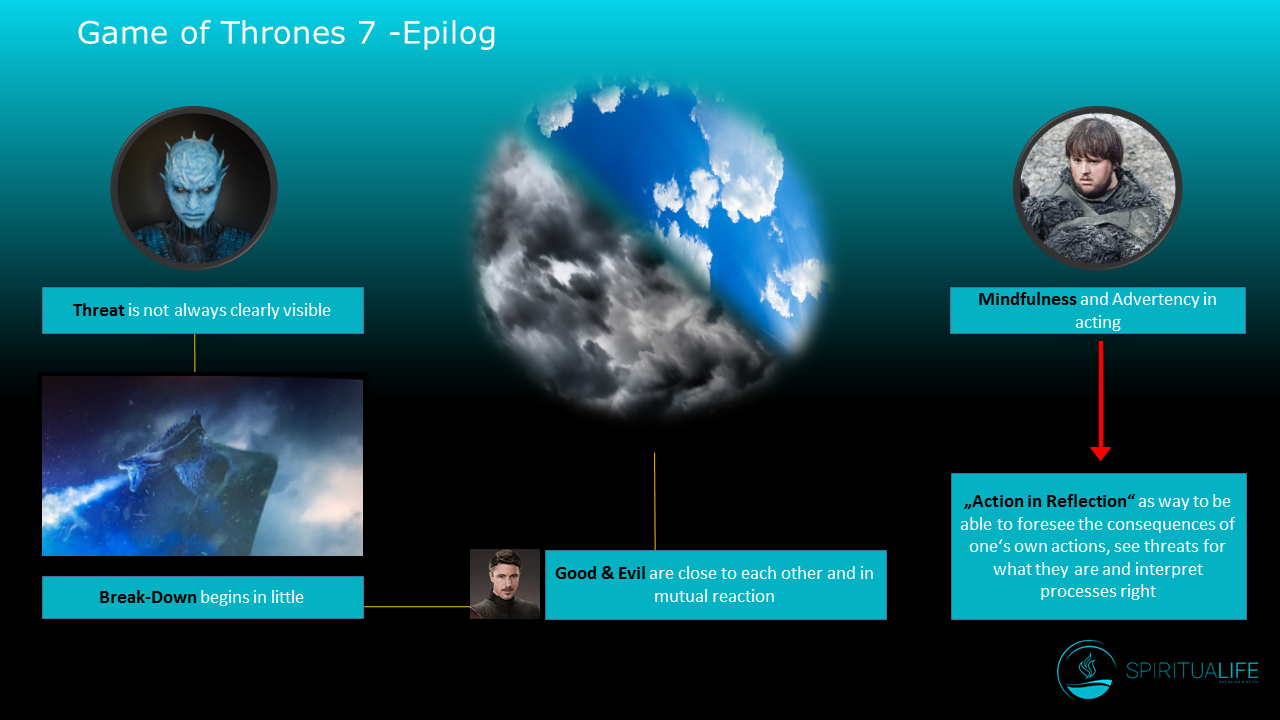
Threat: Is a ubiquitous phenomenon, even in peaceful regions such as Central Europe, we are always afraid that something unforeseen and threatening will happen to us. One of the essential human needs is security. In season seven, the medieval life has returned to normal. Although one sees the society very little, but that might also mean that the people could lead a rather carefree life there. The power games, which were certainly threatening for individuals, took place in the upper social society, ie in the royal houses. A first threat to the kingdom came from the arrival of Daenerys with their dragons and their army, the Dothraki and the Immaculate. Cersei immediately builds counter strategies and seeks allies. That’s exactly what we do in our capitalist economy. Whenever competitors appear, we try to find partners / cliques against this new player. We have many options. We can use our accumulated financial resources to offer under-priced, can also spend some time on maintenance and servicing and thus survive longer periods of drought. It gets very uncomfortable, however, if there are more to this first threat. In GoT, the two queens Cersei and Daenerys must realize that the Night King is the real threat they can only survive through a joint action and coalition. The Night King has resources that are not provided for in the world of the seven lands. He actually has a “perpetuum mobile” – he gets a soldier for every enemy he kills. In addition, and they both do not know yet, he has a dragon spewing blue gas. Especially today, we are facing players in the global marketplace who are using completely different business models and technologies, and this threat is compounded by digitization and technology. It is quite possible that the current financial system is collapsing with cryptocurrency. Furthermore, artificial intelligence is unstoppable and autonomous driving is not. The real threat is that a small group of humanity is taking advantage of an AI system that succeeds in taking over world domination.
Good / evil: These two forms are alternately interchangeable. What is good for one person is evil for the other at the same time and that too can be reversed at any time. In subjective experience, we call everything that is good, what we associate with pleasant experiences and all the evil that is connected with pain. When a man races through a crowd in a truck and 120 people are killed, Central European culture perceives it as a terrorist evil act, while in Islamic culture the same experience is tolerated and, in fundamental circles, even considered a highly rewarding good deed. Thus, good and evil is a clearly cultural matter. Peter Baelish has been convinced all his life is just to do the good and to want. Unfortunately, many people died as a result, it took a long time until little finger was convicted of his machinations, sentenced by Sansa and finally executed by Ariya. What was normal just a few years ago, such as smoking in a coach, is now utterly frowned upon and even regarded by some people as a hostile act. In summary, good and evil are culturally and temporally dependent and therefore determined by the spirit of the time.
Collapse: Breakdowns of large systems such as the ancient societies we know from history books. However, most of us have already experienced a personal breakdown in varying degrees, a failed love, a death, a professional failure, a failed exam, etc. These events also are very common as bad as ever and may have been, life goes on in any case, even if it’s very very difficult in case of death. Less difficult is the whole thing, if you look at it as a spectator from the outside. There are also people who enjoy it and can even enjoy it. Is the case in economic life and can also be followed in the development of partnerships and relationships. The collapse in GoT is represented by the melting of the Great Wall. The Revenant Dragon Viserion melts the millennia-old ice wall in the north. It is at this point that the collapse can be seen. The seven royal lands and their leaders feel and know nothing about it. This is not because they are unable to see this trifle and recognize its impact. Firms that are about to end their bankruptcy ignore that as well and conceal it with performance put on display. In these situations, companies are exactly what they have been able at best, namely to introduce products that present services at the highest level. One should not be fooled by the performance alone,that could already be the expression of a collapse. Cersei puts on the Iron Bank to pay for mercenaries – that’s what she has always done.
Mindfulness: Threats are often invisible. Good and evil are indistinguishable. And the collapse begins on a small scale. We can barely recognize all this in hectic everyday life in a meritocracy and a complex world. Whether the American president is acting in good or evil, and whether Kim Jong Un really is a threat and whether there is a collapse of the financial system. Although there are always signals, we are unable to recognize them and when they are popping up there is still the danger that we misinterpret them. The only way to improve prognosis is mindfulness. This is reduced by actionism and increased by reflection. The supreme discipline: action in reflection. If we are able to observe ourselves in all our activities, we learn to better assess the consequences of our own actions. Then we can generalize this learning experience and are thus a little bit more able to recognize what is really happening in the world. I would like to take Samwell Tarly as a role model for here.
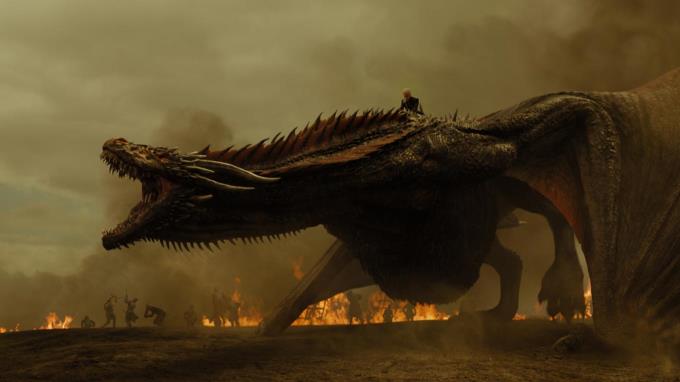
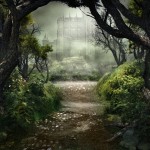


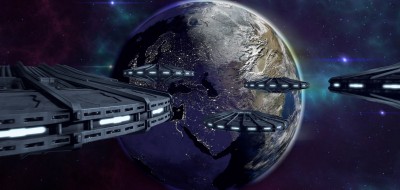
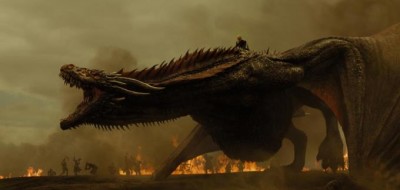
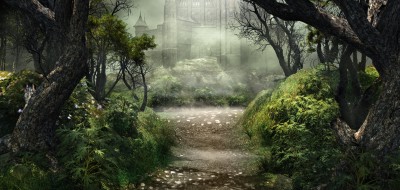
 Deutsch
Deutsch English
English